
Come or Go English Vocabulary Lesson English Tutor Hub
In 6% of cases "come with" is used. Most computers (99%) come with. That will come with experience. The problem comes with overuse. Each egg capsule comes with a sticky thread that is carefully wound around the stick. Write down what benefits each has, and write down what comes with different packages.
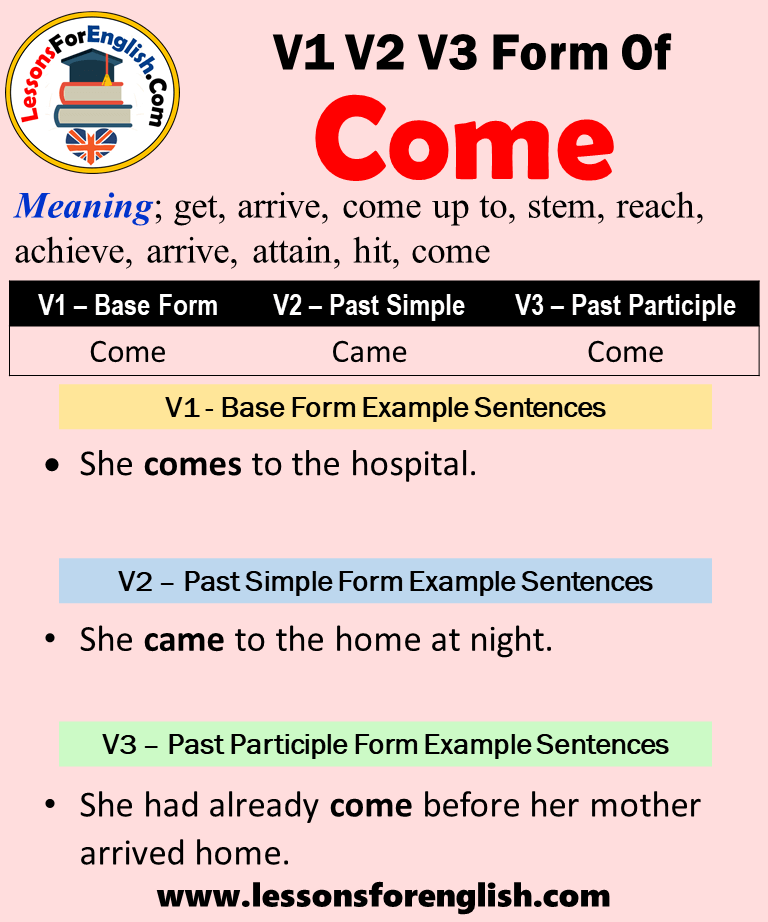
Come Past Simple Simple Past Tense Of Come Past Participle V1 V2 V3 Hot Sex Picture
Synonym for como Yo "como" El/ella "come" Tú "comes"|yo "como" = i eat el "come" = he eats tu "comes" = you eat|yo como / i eat el/ella come / he/she eats tu comes / you eat |The difference is that they are conjugated verbs with different pronouns yo (I) - como el/ella (he/she) - come tu (you) - comes All in simple present|depeds the person x example: I eat means Yo como she or he eats ella.
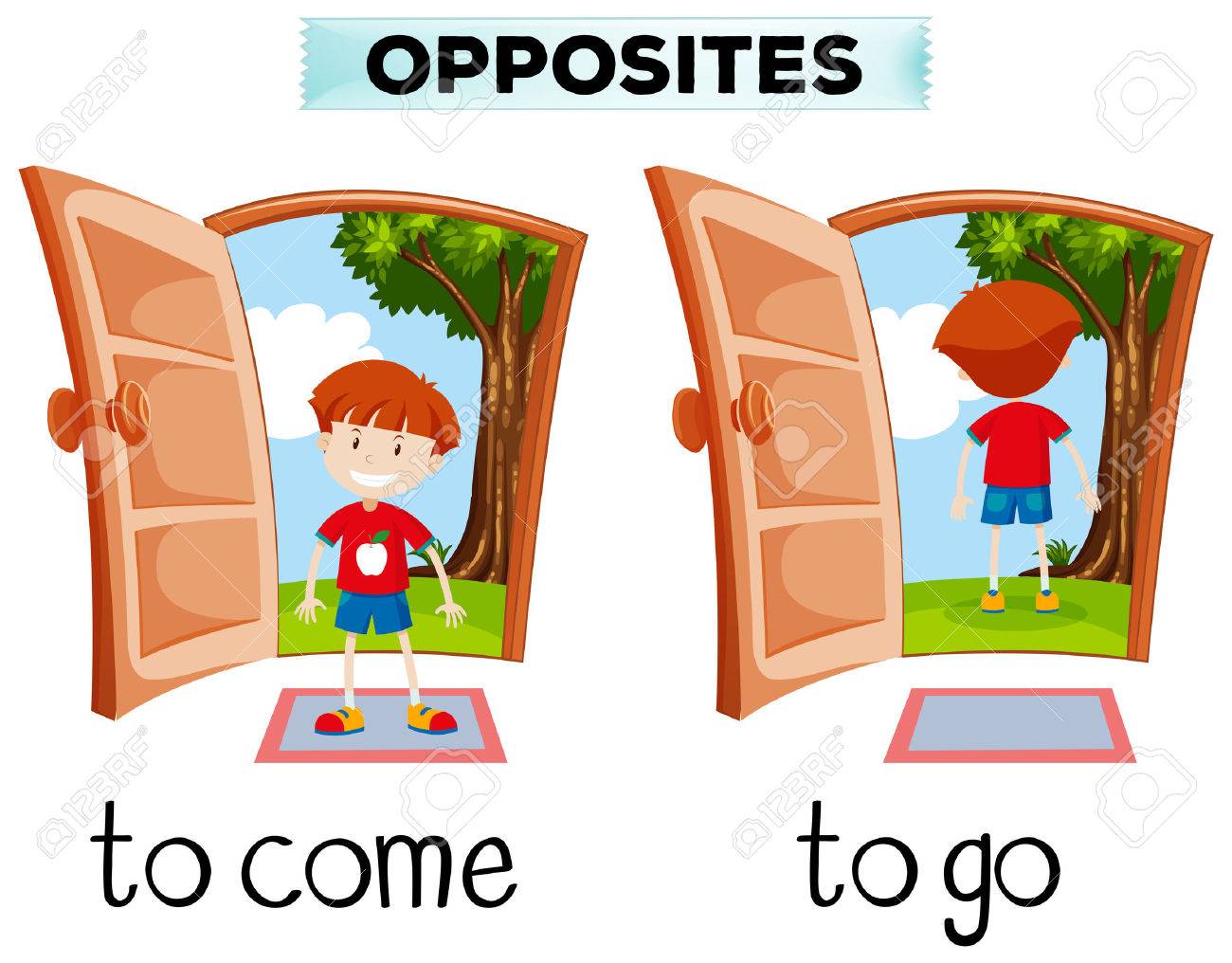
clipart come in 20 free Cliparts Download images on Clipground 2023
License Creative Commons Attribution license (reuse allowed) In this basic English grammar lesson, learn how to use "come" and "came" correctly so you can speak English confidently. The verb.

99 Phrasal Verbs with COME Come on, Come in, Come at, Come along... • 7ESL Phrasal verb
The prolonged and contentious battle over the estate of the late Abigail Kawananakoa has come to an amicable end with the spouse of the late Campbell Estate heiress walking away with at least $40.

Come vs Go Learn English Grammar, English Fun, English Idioms, American English, English Phrases
Define Come Come is a verb that is used to indicate movement towards or arrival at a particular place. It is also used to indicate the present tense of the verb when the subject is I, you, we, or they. The word come can also be used as a noun, meaning a sexual climax or orgasm. Here is a table summarizing the different forms of the verb come:

COME and GO How to Use Come vs. Go Correctly ESLBUZZ
1. "Came" Is The Past Tense Of "Come". When referring to an action that happened in the past, use "came" if the subject is not the speaker or the listener. For example, "She came to the party last night.". 2. "Come" Is The Present Tense Of "Came".

COME and GO How to Use Come vs. Go Correctly ESLBUZZ
When a person or thing comes to a particular place, especially to a place where you are, they move there. Two police officers came into the hall. Come here, Tom. We heard the train coming. The impact blew out some of the windows and the sea came rushing in. Synonyms: arrive, move, appear, enter More Synonyms of come 2. transitive verb

59shares Learn useful phrasal verbs with COME with meaning and examples. List of common phrasal
That means the verbs are come, came, come. But you still need to conjugate the verb with the subject and the correct time reference. By the end of the lesson, you'll feel confident using the verb "to come" in the present and past.

COME OR GO? Learn British English Grammar* YouTube
Add a comment 2 Answers Sorted by: 7 It's because picnics and barbecues are plural. Consider: Picnics come in the summer, the sun comes at dawn. When the noun is singular, we conjugate with comes; when the noun is plural, we conjugate with come.
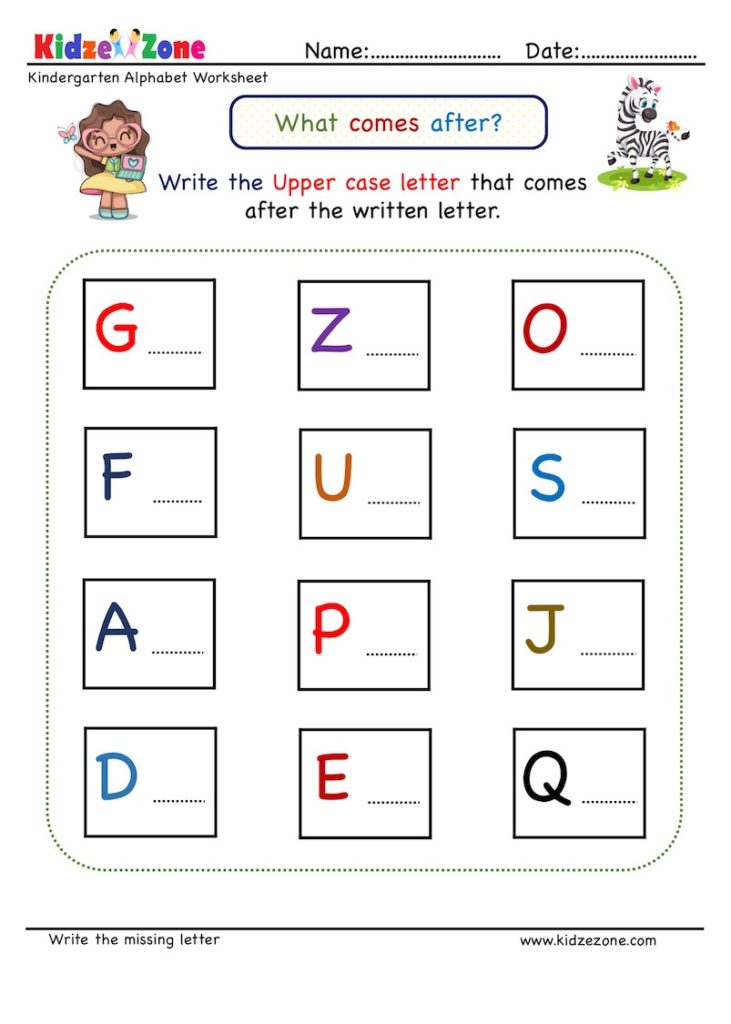
Kindergarten Missing Letter Worksheet What Comes After 2
- English Language Learners Stack Exchange Who come / comes here? Ask Question Asked 3 years, 8 months ago Modified 2 years, 8 months ago Viewed 3k times 0 Dad says to his son: Who come / comes to meet you every evening. ( When Dad knows for sure that there are more than one person)
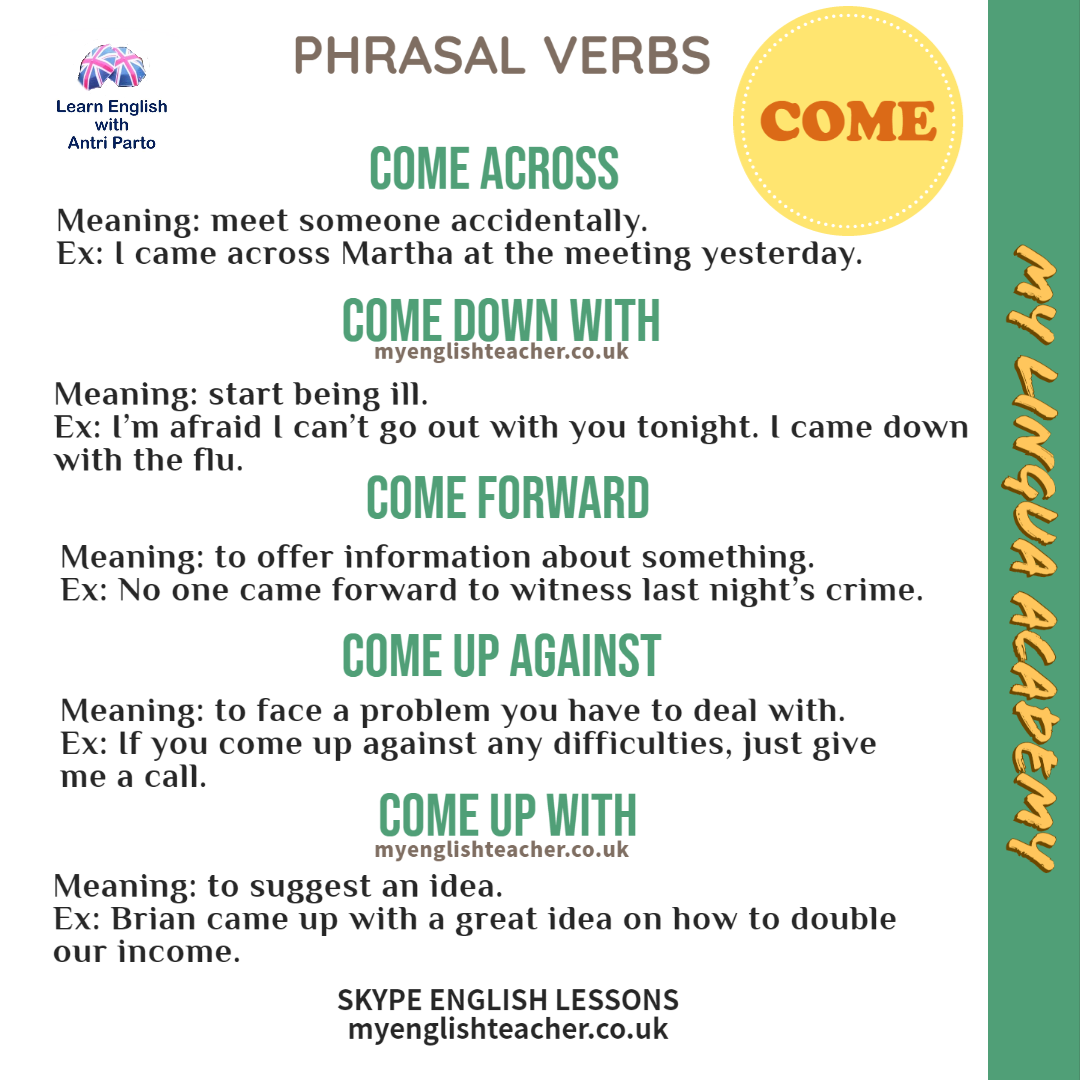
6 Phrasal Verbs with My Lingua Academy
"Cummed" shows us how creative we are with our language, how we play with it, and in this case do something useful, differentiating the sublime "got off" (climaxed) from the banal "got there".
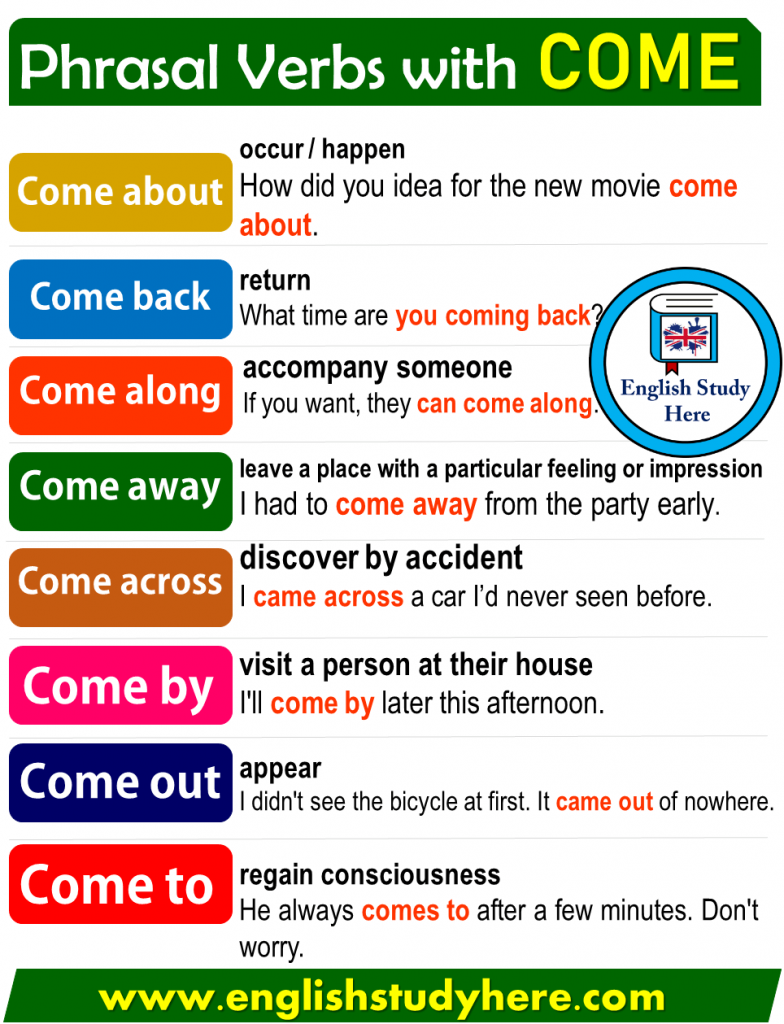
Phrasal Verbs with COME English Study Here
Comes is the third person singular form of the verb come. It is used to describe the act of arriving at a particular place or time. The word comes is often used in conjunction with a subject to describe the arrival of a person or thing. For example, "He comes to work at 9 am every day" means that the subject (he) arrives at work every day.

phrasal verbs with COME English Sentences, English Idioms, English Phrases, Learn English Words
McDonald's will offer a Double Big Mac beginning Jan. 24 in participating restaurants nationwide for a limited time. As you would expect, the sandwich has double the amount of all-beef patties (4.

COME or GO English vocabulary lesson YouTube
1 Despite having written in English for 35 years, I was surprised today to be told that the correct phrase is "With freedom come choices" because if you reverse the sentence, "with freedom choices comes" doesn't scan. I can sort of squint and see the rationale here, but what's the rule?

Come Past Simple, Simple Past Tense of Come, V1 V2 V3 Form Of Come Come means move or travel
Verb ( label) To move from further away to nearer to. * ( William Shakespeare) (1564-1616) Look, who comes yonder? * (1809-1892) I did not come to curse thee. # To move towards the speaker. # To move towards the listener. # To move towards the object that is the of the sentence. # ( label) To move towards the or subject of the main clause.

99 Phrasal Verbs with COME Come on, Come in, Come at, Come along... • 7ESL Learn english
Come Grammar > Verbs > Using verbs > Come from English Grammar Today Come describing movement We usually use come to talk about movement from the listener to the speaker or from the speaker to the listener. Movement from listener to speaker Can you come to my office? I need to show you something. Movement from speaker to listener